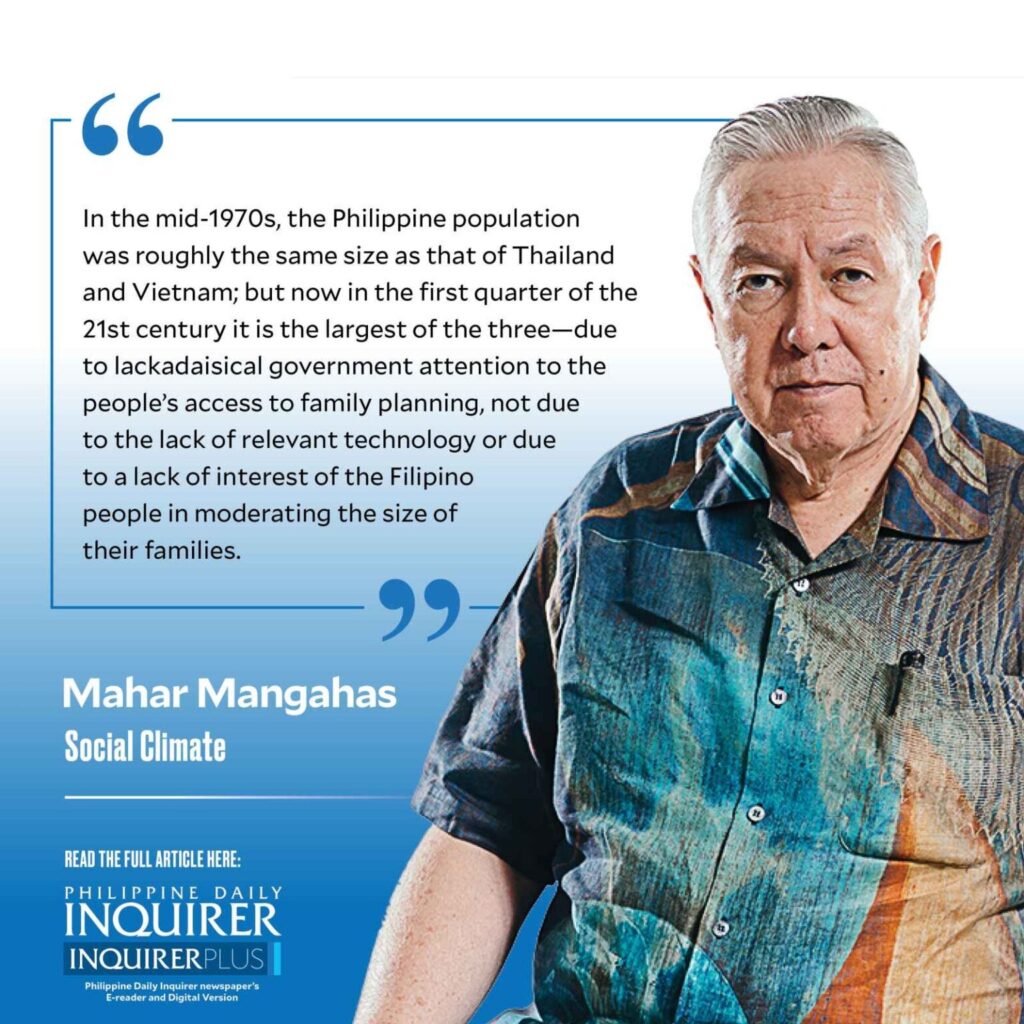Is social science heeded?
In choosing the theme for a forthcoming annual scientific meeting of the National Academy of Science and Technology (Nast), its six divisions—agricultural sciences; biological sciences; mathematical and physical sciences; engineering sciences and technology; health sciences; and social sciences—take turns.
Last year, as one administration was ending, and transitioning to a new one, SSD proposed, and Nast adopted, the 2023 theme of “Science and Technology for Democracy.” Its simple message was that our prime concern was the functioning of democracy in our country.
The SSD was consulted as to whom to invite as keynote speaker for the 2023 annual meeting, and proposed a world-acclaimed Filipino in a social science-based occupation. But then we were informed that, previously, every newly elected president had been invited to do the keynote so tradition prevailed.
In the end, President Marcos was a no-show at the opening of the meeting at the Manila Hotel last Wednesday; no representative arrived. (The meeting was a hybrid of in-person and virtual, by the way.)
By Thursday, the second day of the two-day meeting, the souvenir program’s two pages featuring the keynote speaker had been glued together. Was any speech prepared? Was this some kind of counter message to the scientific community?
Social scientists are veterans in being frustrated. Being ignored is par for the course. My own biggest frustration is that so little was done to restrain population growth, despite the huge 1975-77 research project on “Population, Resources, Environment and the Philippine Future,” done by a troika of the Development Academy of the Philippines, the University of the Philippines School of Economics and the UP Population Institute (UPPI) (published in the book “Probing Our Futures,” 1980).
The UPPI was headed at that time by NS Mercedes Concepcion, demographer, who is the oldest surviving SSD member.
In the mid-1970s, the Philippine population was roughly the same size as that of Thailand and Vietnam; but now in the first quarter of the 21st century it is the largest of the three—due to lackadaisical government attention to the people’s access to family planning, not due to the lack of relevant technology or due to a lack of interest of the Filipino people in moderating the size of their families.
Incidentally, Nast was created in 1976, by Presidential Decree No. 1003. The first ten academicians were named in 1978. Yes, Filipino scientists do get recognized, but there’s not enough follow-up on the practical implications of their work.
Some take-aways from the 2023 Nast meeting. The annual scientific meeting is a venue for the cream of the community to express themselves. A few highlights:
Ϫ Aniceto C. Orbeta, Jr., president of the Philippine Institute for Development Studies (PIDS), spoke on on “4Ps and government anti-poverty programs: what works, what doesn’t, and what we still need to know.”
4Ps stands for Pantawid Pamilyang Pilipino Program, or the conditional cash transfer program. It has an enumeration process for beneficiaries, called “Listahanan.” The identification is very basic, it doesn’t have to be perfect, given the enormity of poverty. Social Weather Stations is proud of having done several 4Ps surveys, often in remote areas, that were turned over to PIDS for program impact evaluation.
Ϫ Acd. Bienvenido F. Nebres, SJ, a mathematician, spoke on Ateneo University’s experience working with Valenzuela City, Gawad Kalinga, and Jollibee Foundation in programs to feed (at a cost of P18 per meal) and house the poor.
Fr. Nebres says that 95 children die from malnutrition every day. To prevent this, local governments, civic organizations, and private sector organizations can cooperate. Teachers should not be saddled with extra duties of cooking and serving meals, or else their teaching will suffer. Poor children need nutrition most of all in the first thousand days of their lives.
Ϫ Acd. Christopher C. Monterola, SSD member and data scientist at the Asian Institute of Management, spoke on “Chat generation pre-trained transformer (GPT) and Philippine education.”Artificial intelligence or AI is exploding at a fantastic rate. I asked if AI could be weaponized to fight for democracy; the answer was yes, but/and it would likewise be weaponized to defend dictatorships. To start at home, I foresee that AI will be very helpful in preparing survey reports for rapid public dissemination. Ϫ Acd. Allan B. I. Bernardo, SSD member and psychologist at De La Salle University, spoke on “Democratic citizenship in the age of Mis/Disinformation: insights from social science research.”
Misinformation and disinformation have become so intrusive in the Philippines, that, in a scale from most autocratic to most democratic, we rank 100th in democracy among 175 countries. How do we Filipinos protect ourselves? Who will be our guardians? Science can provide some, but not all, of the answers.
—————-
Contact: [email protected].
Disclaimer: The comments uploaded on this site do not necessarily represent or reflect the views of management and owner of Cebudailynews. We reserve the right to exclude comments that we deem to be inconsistent with our editorial standards.

